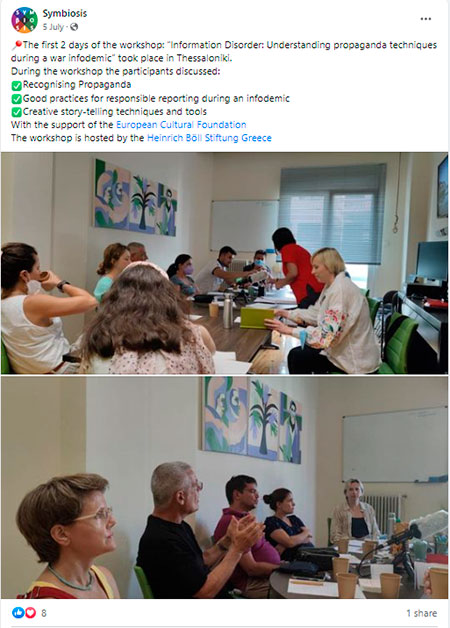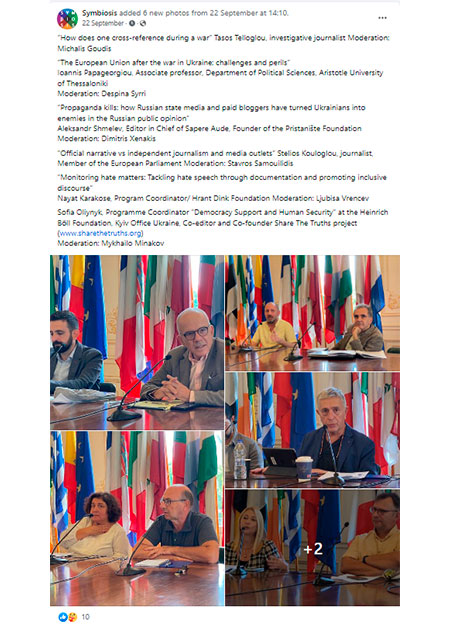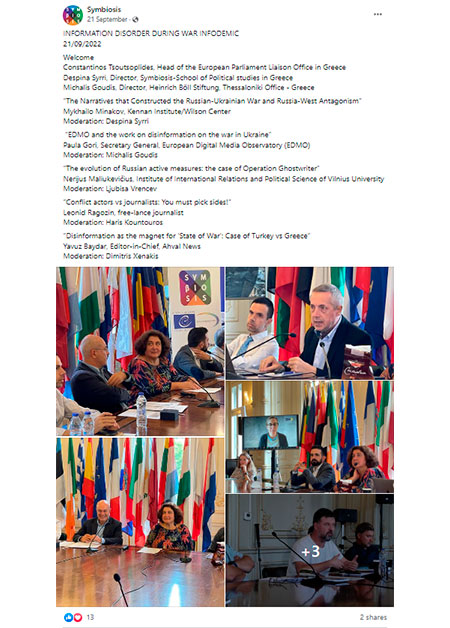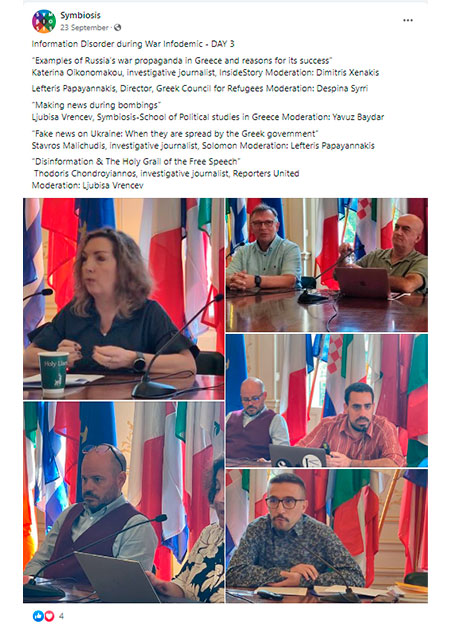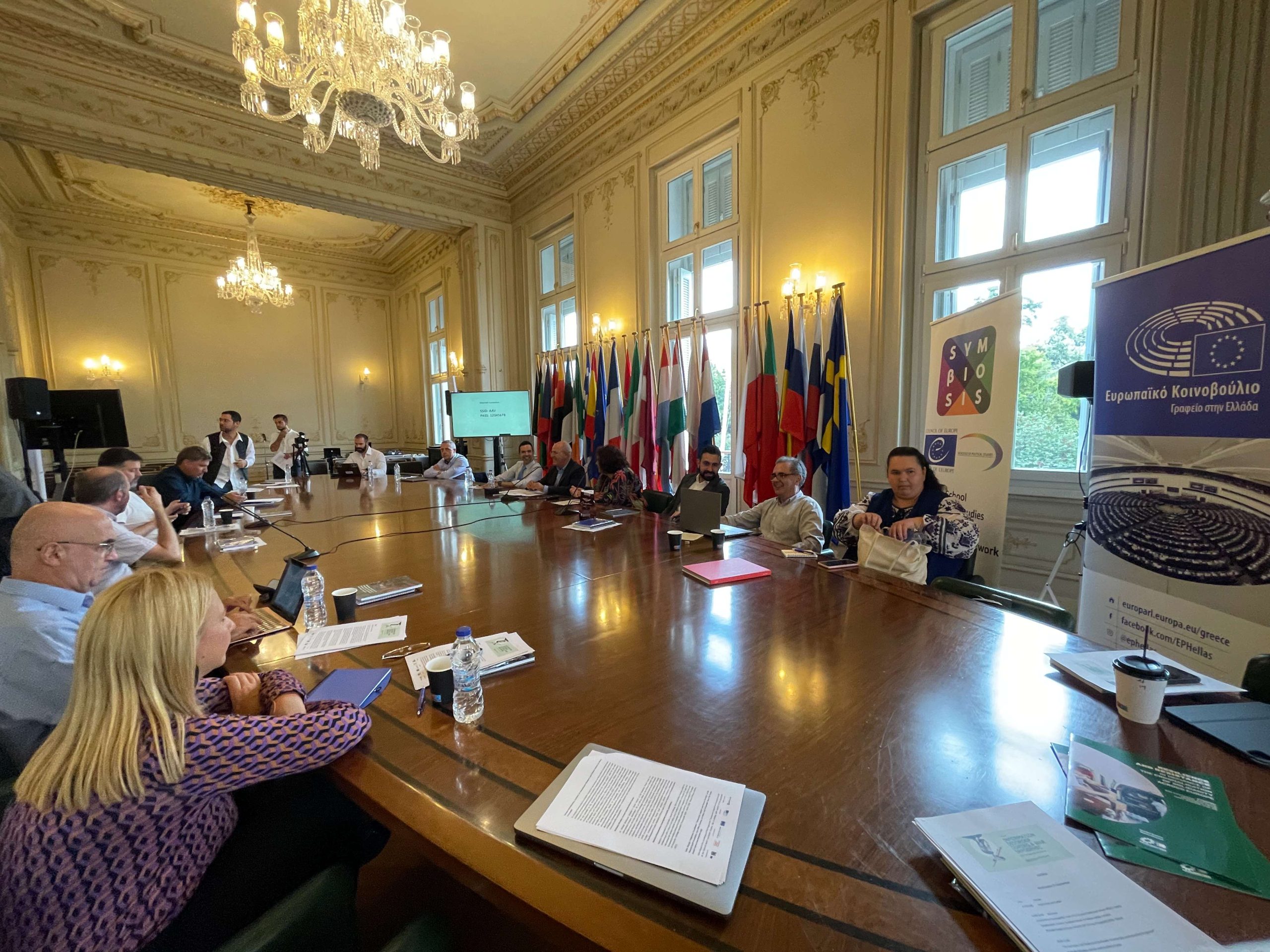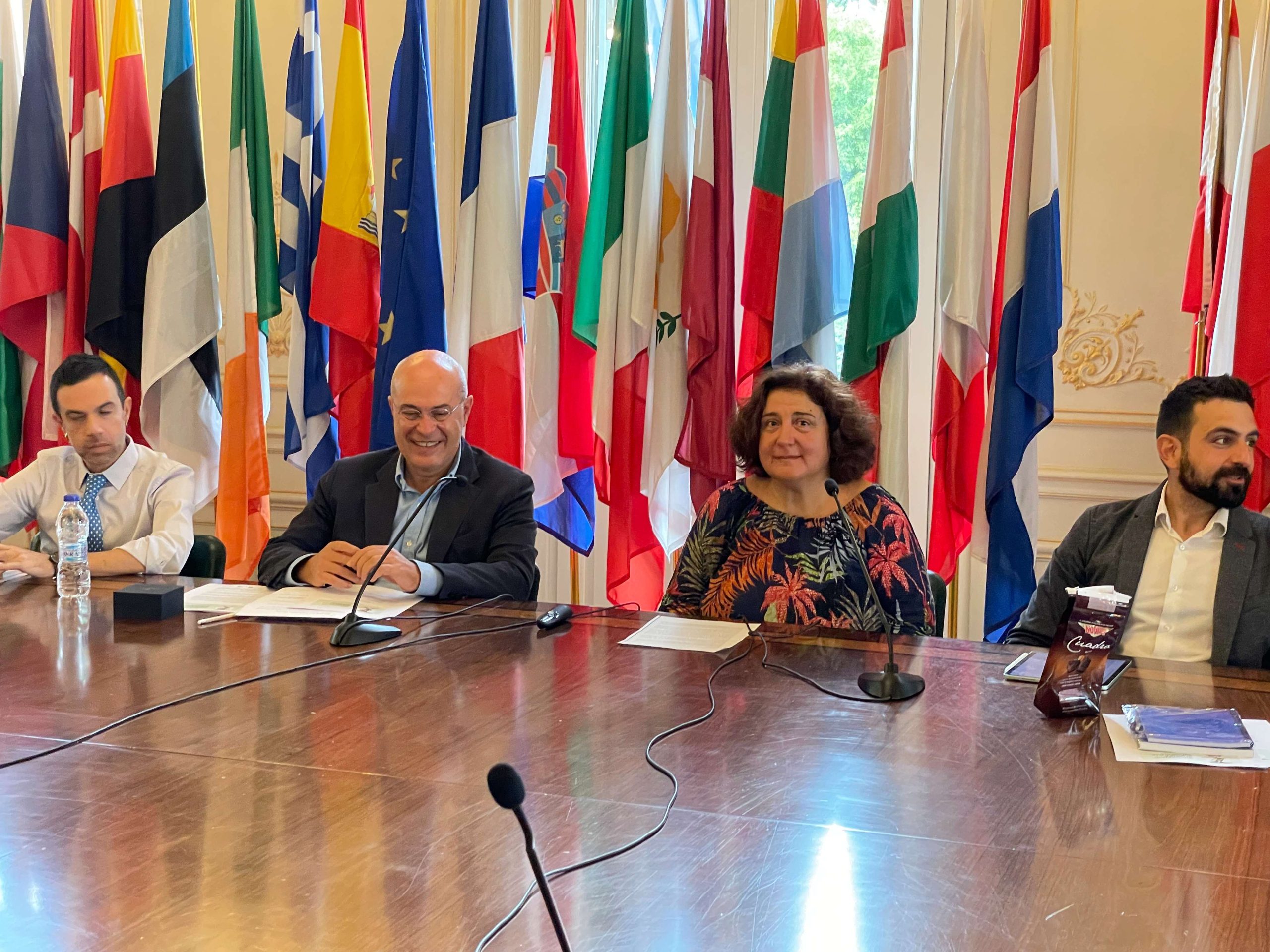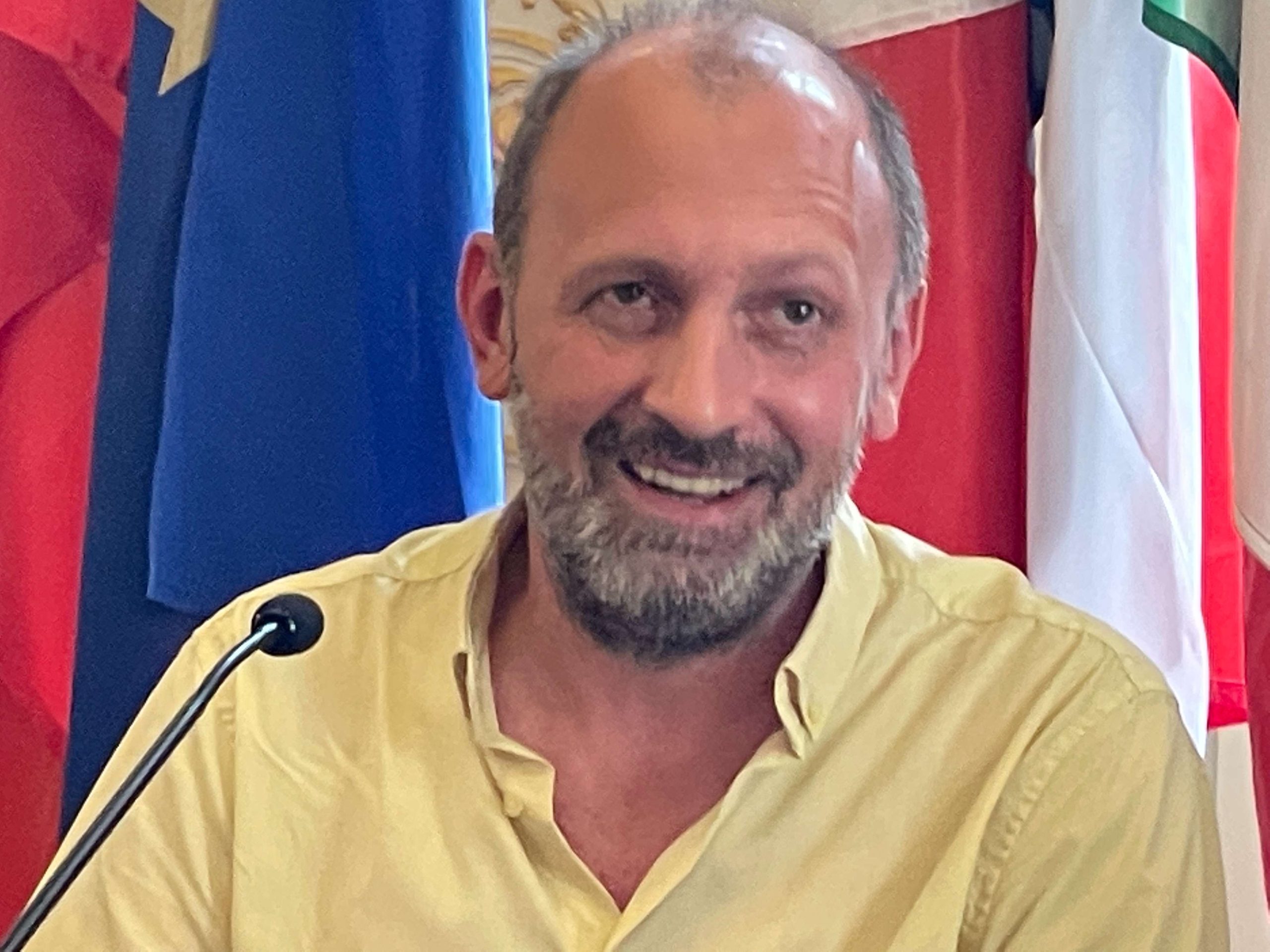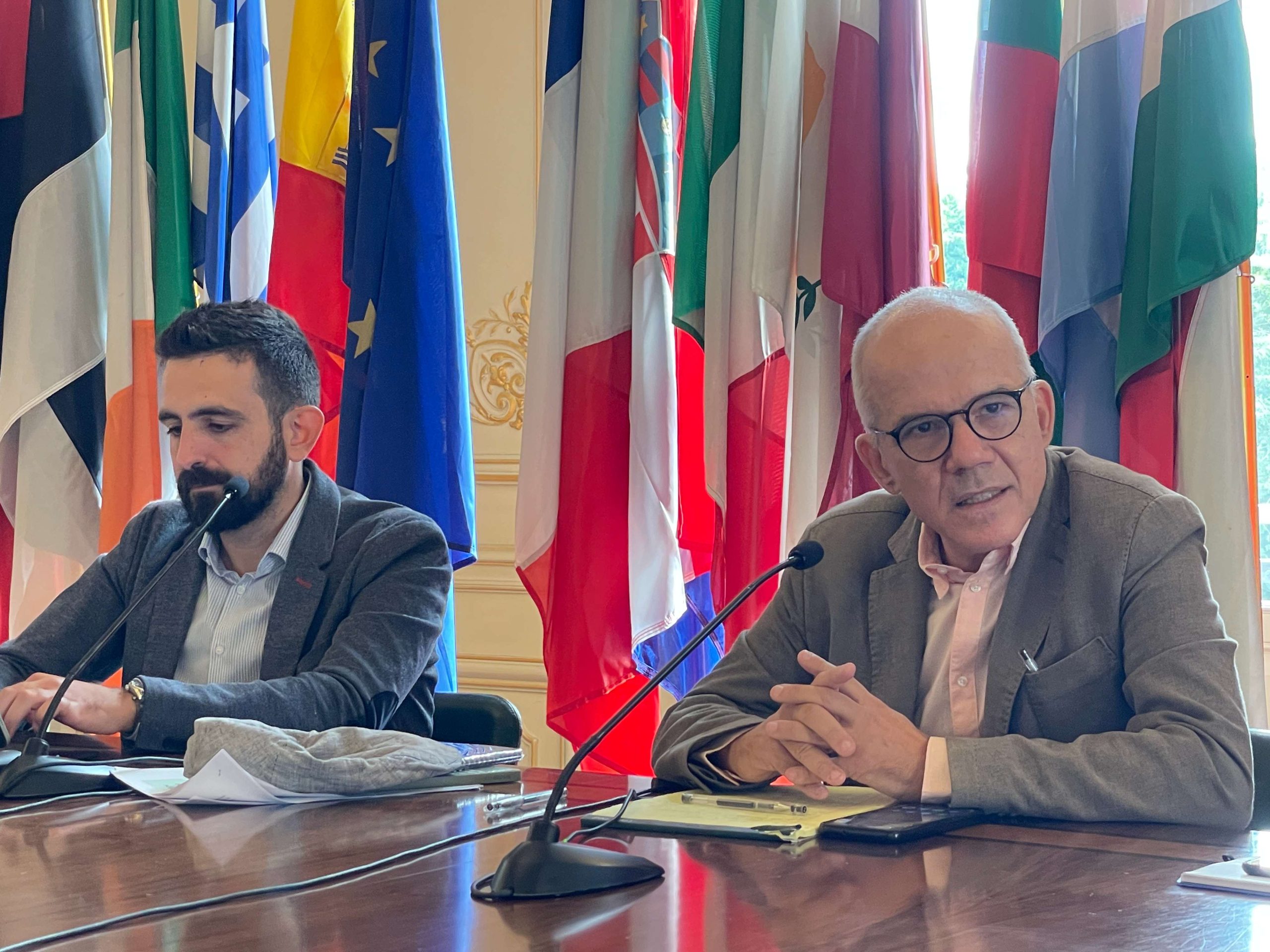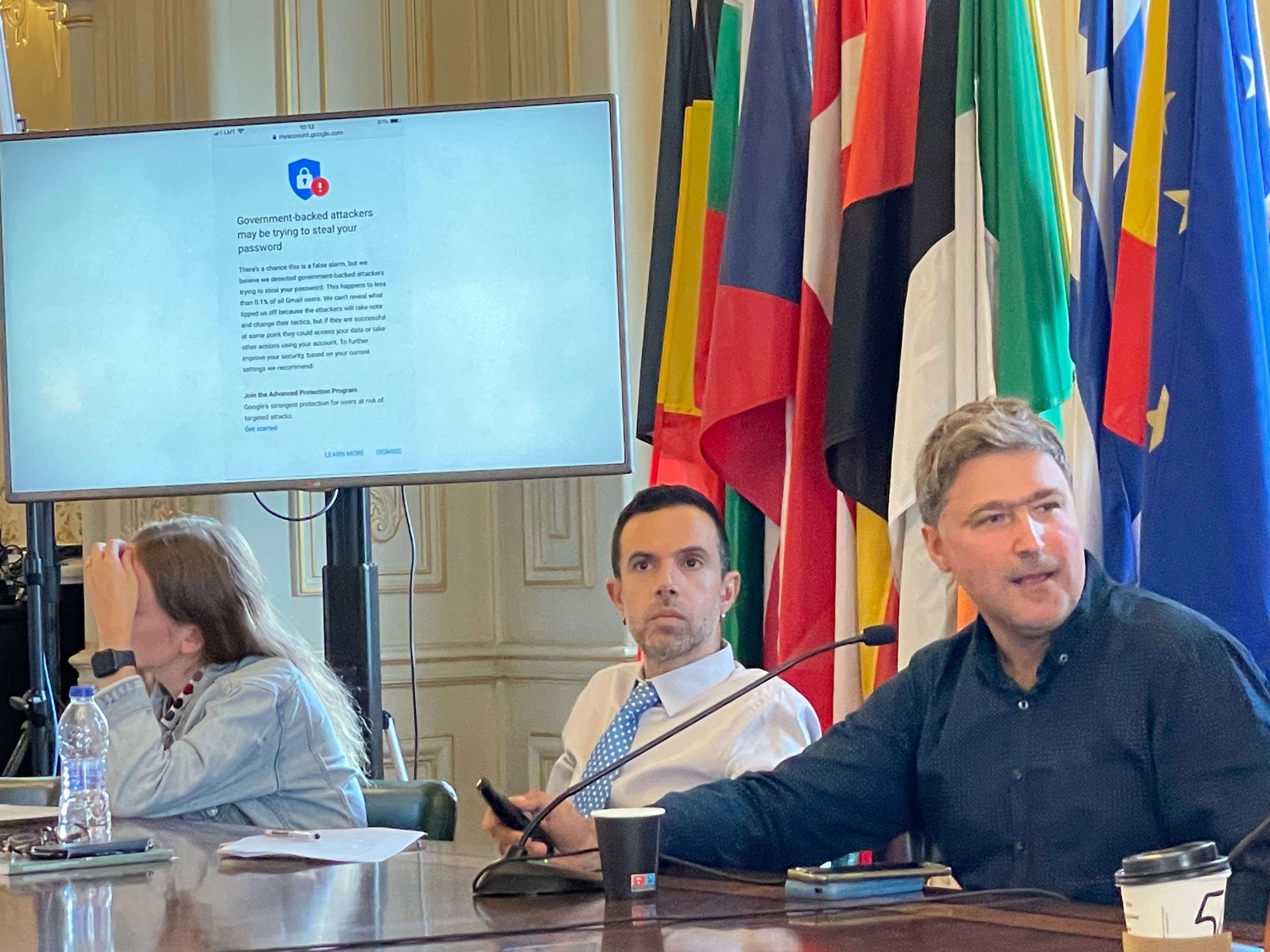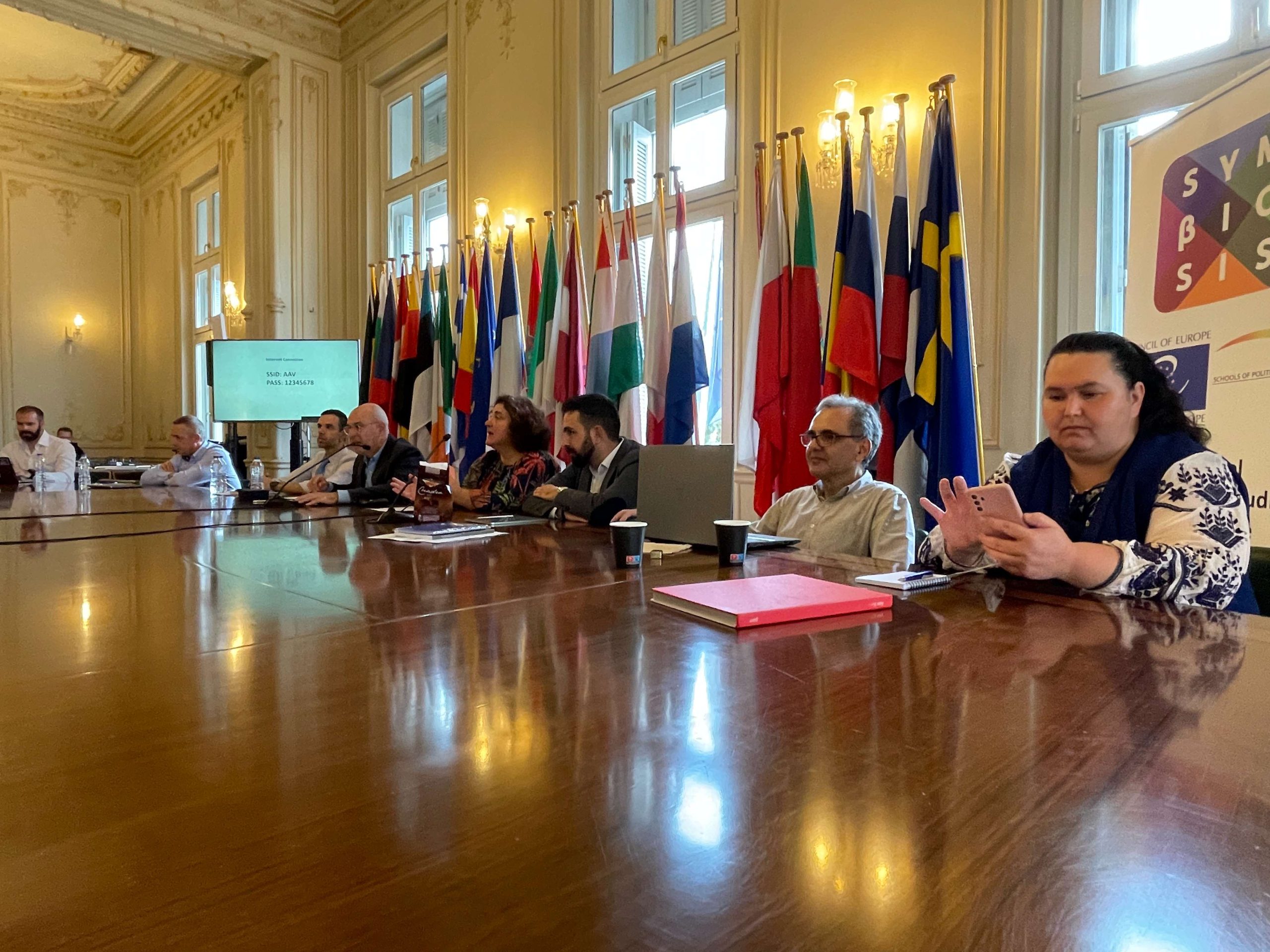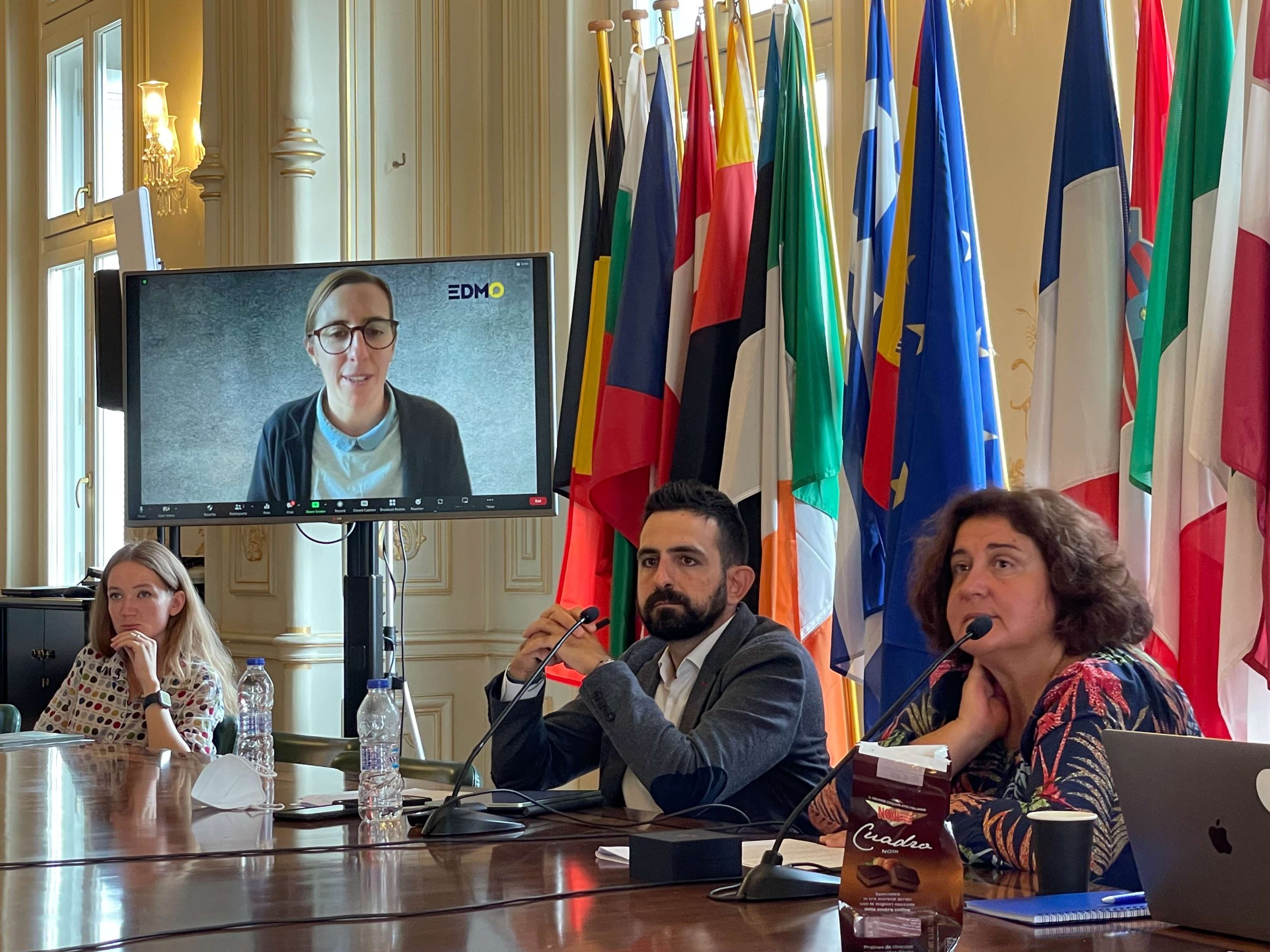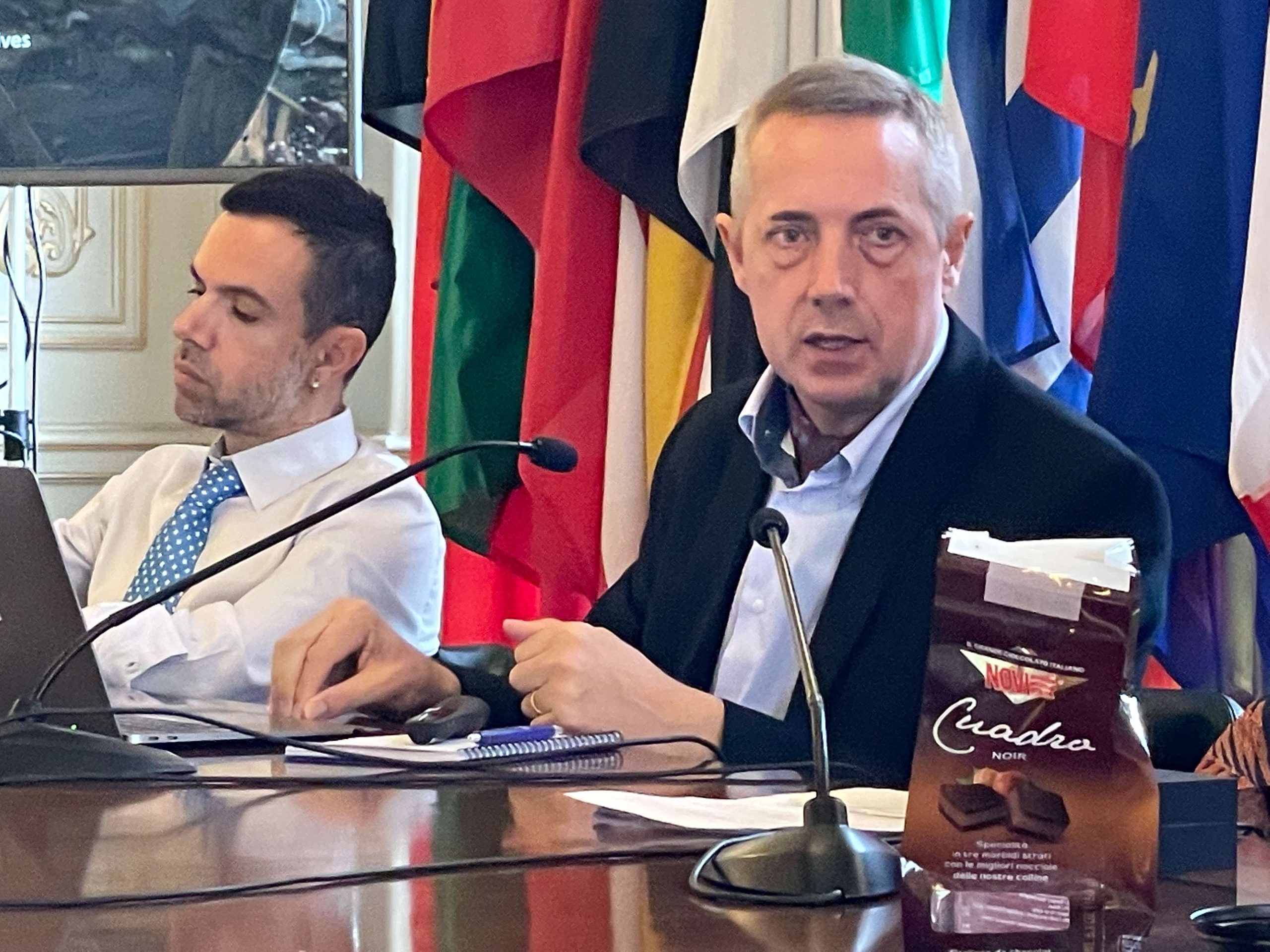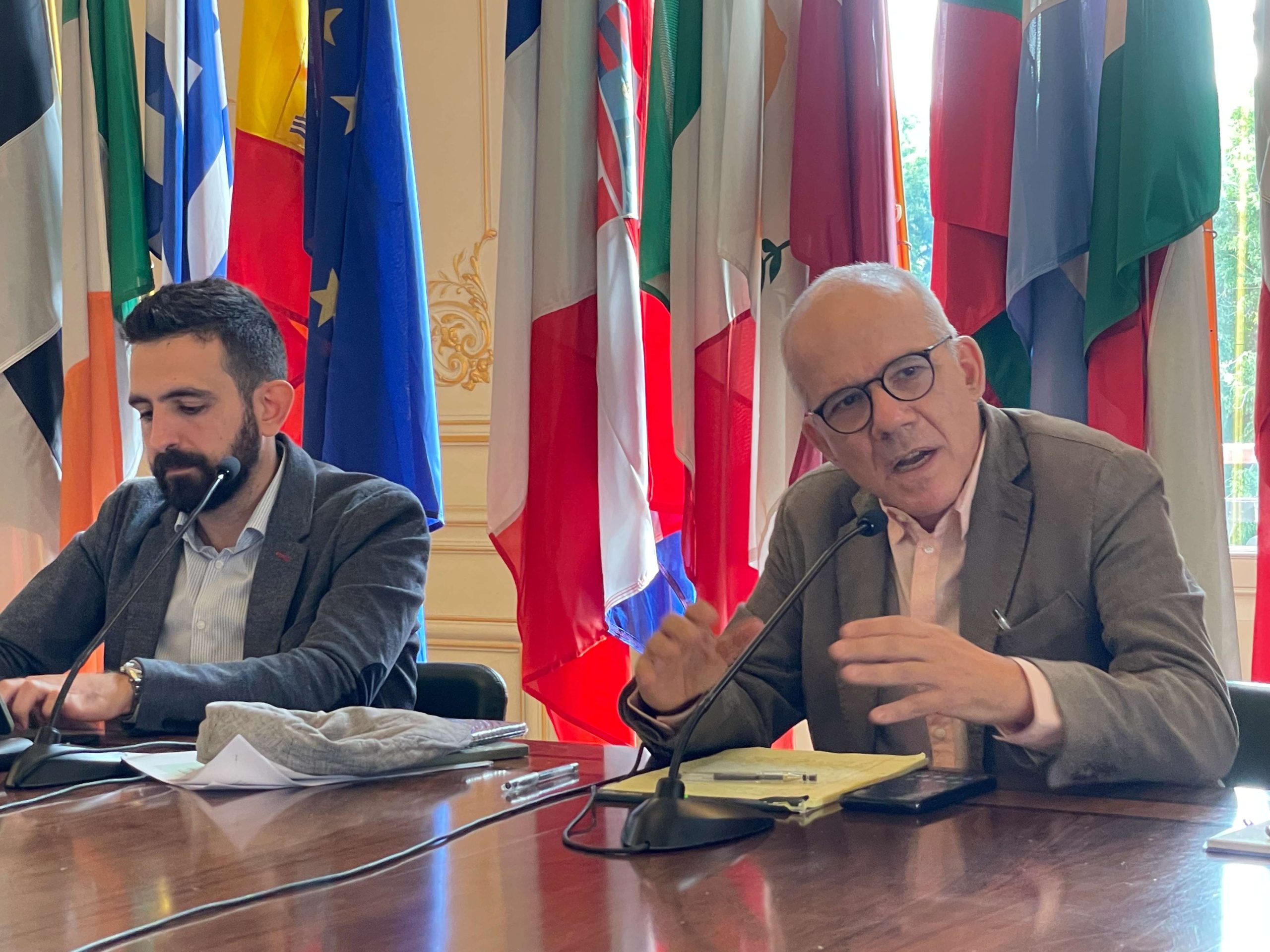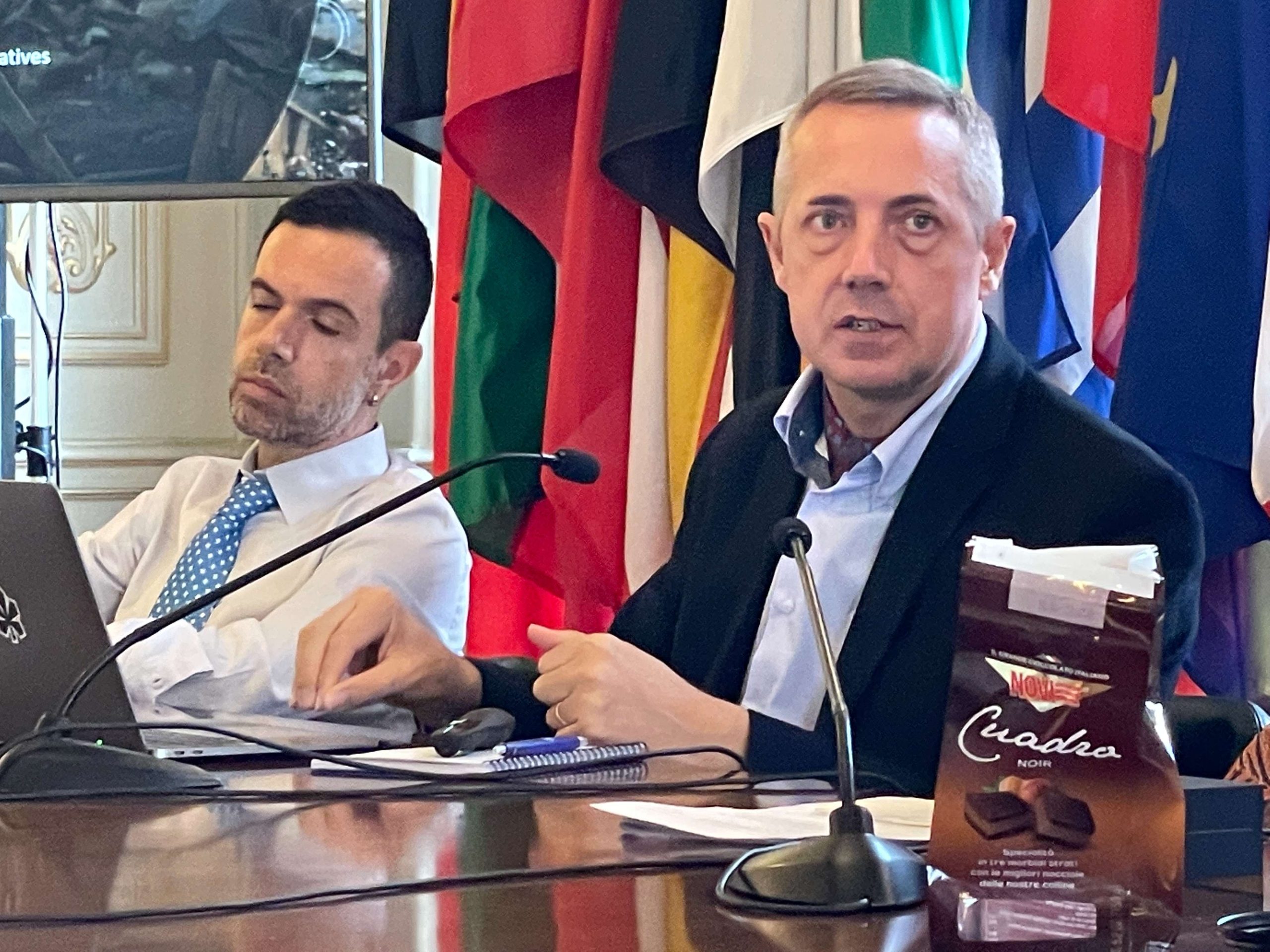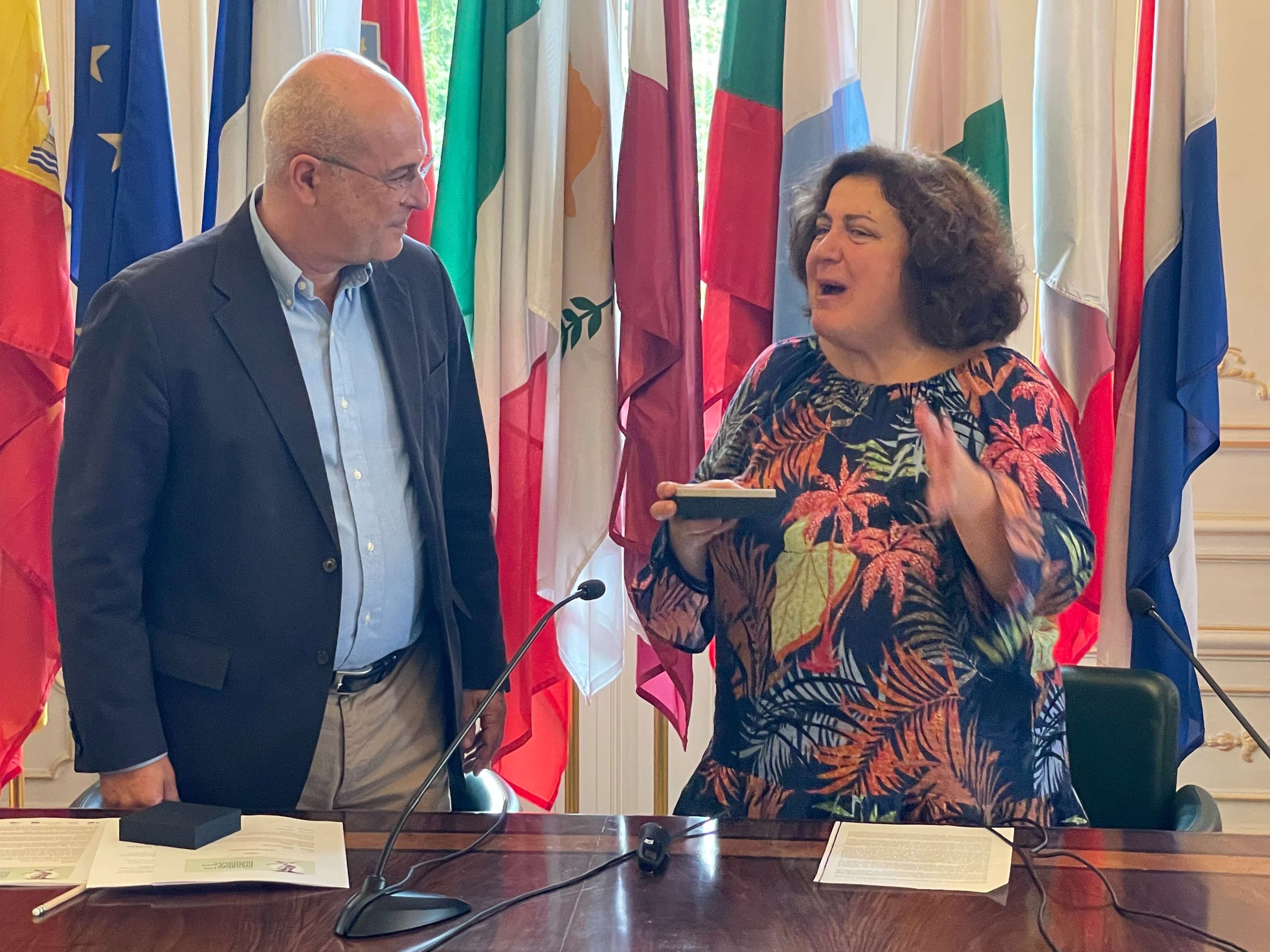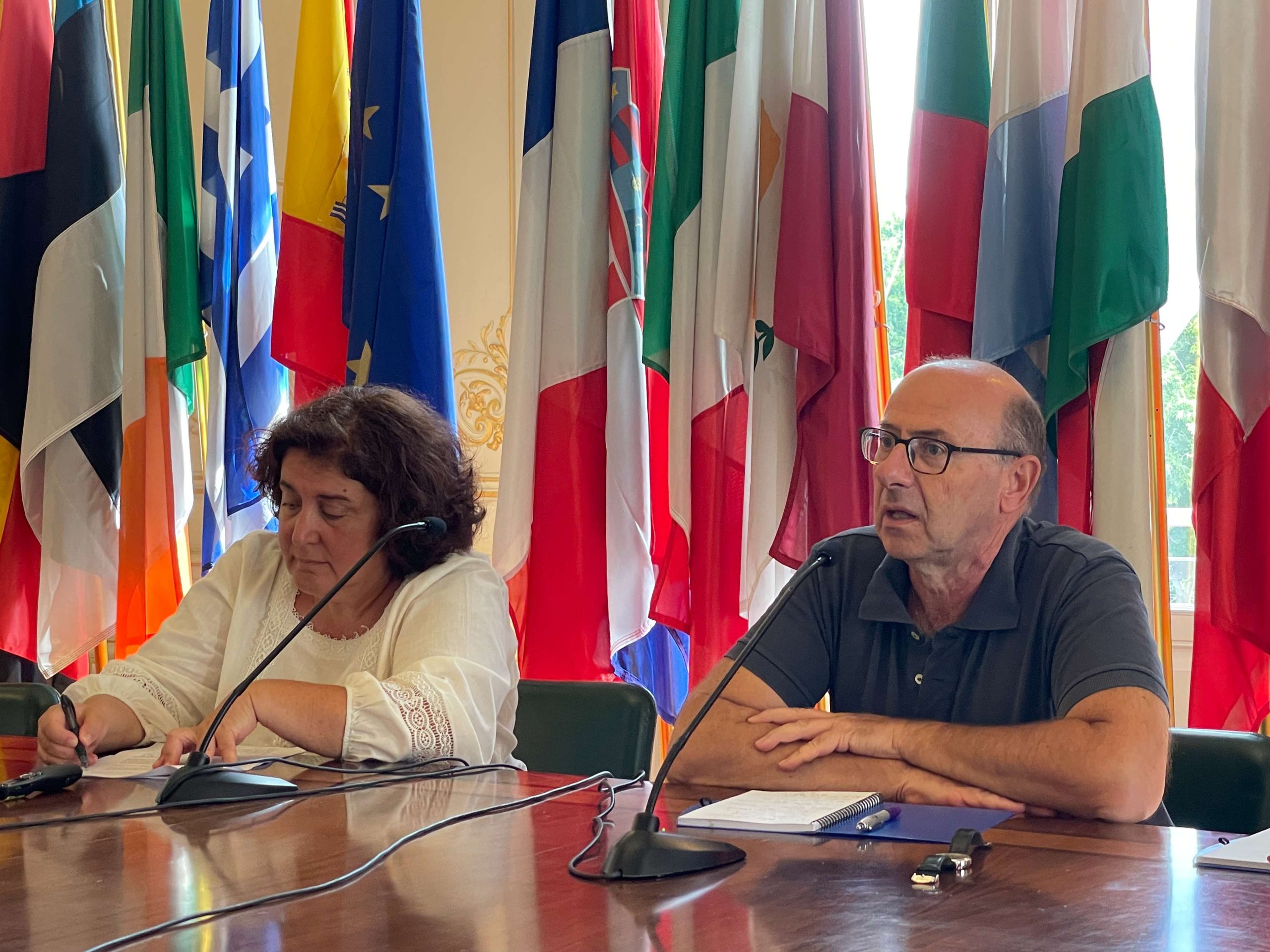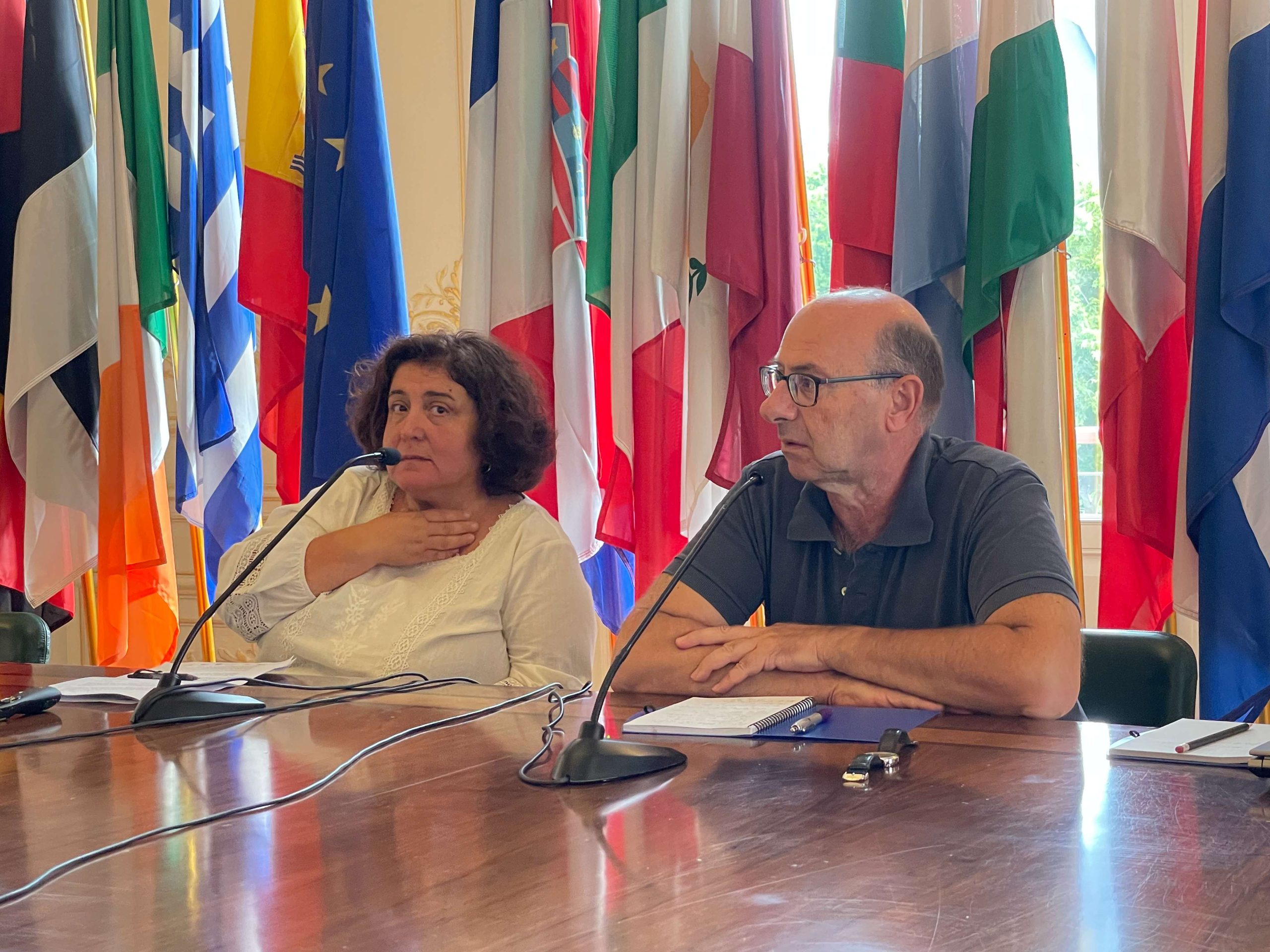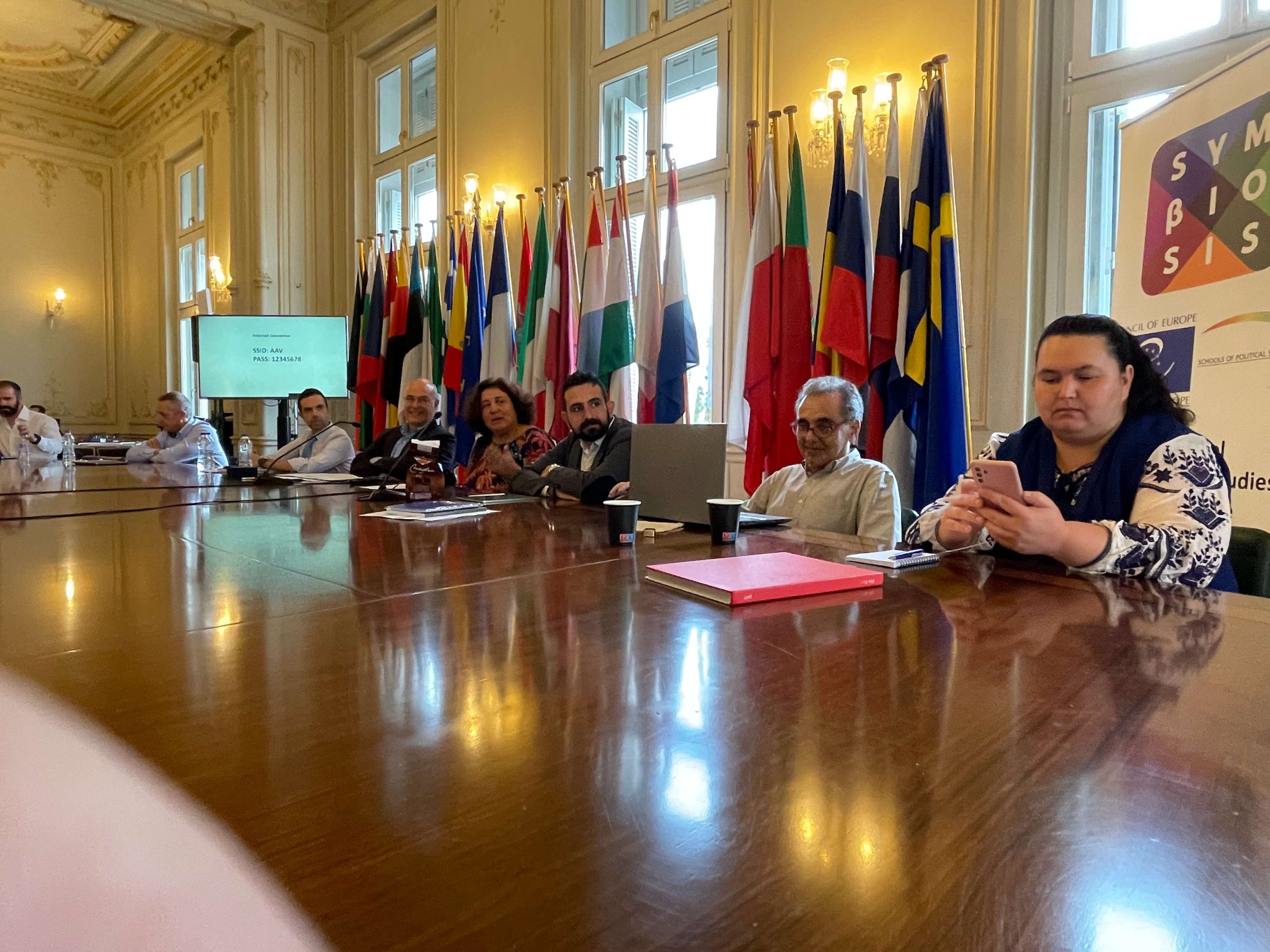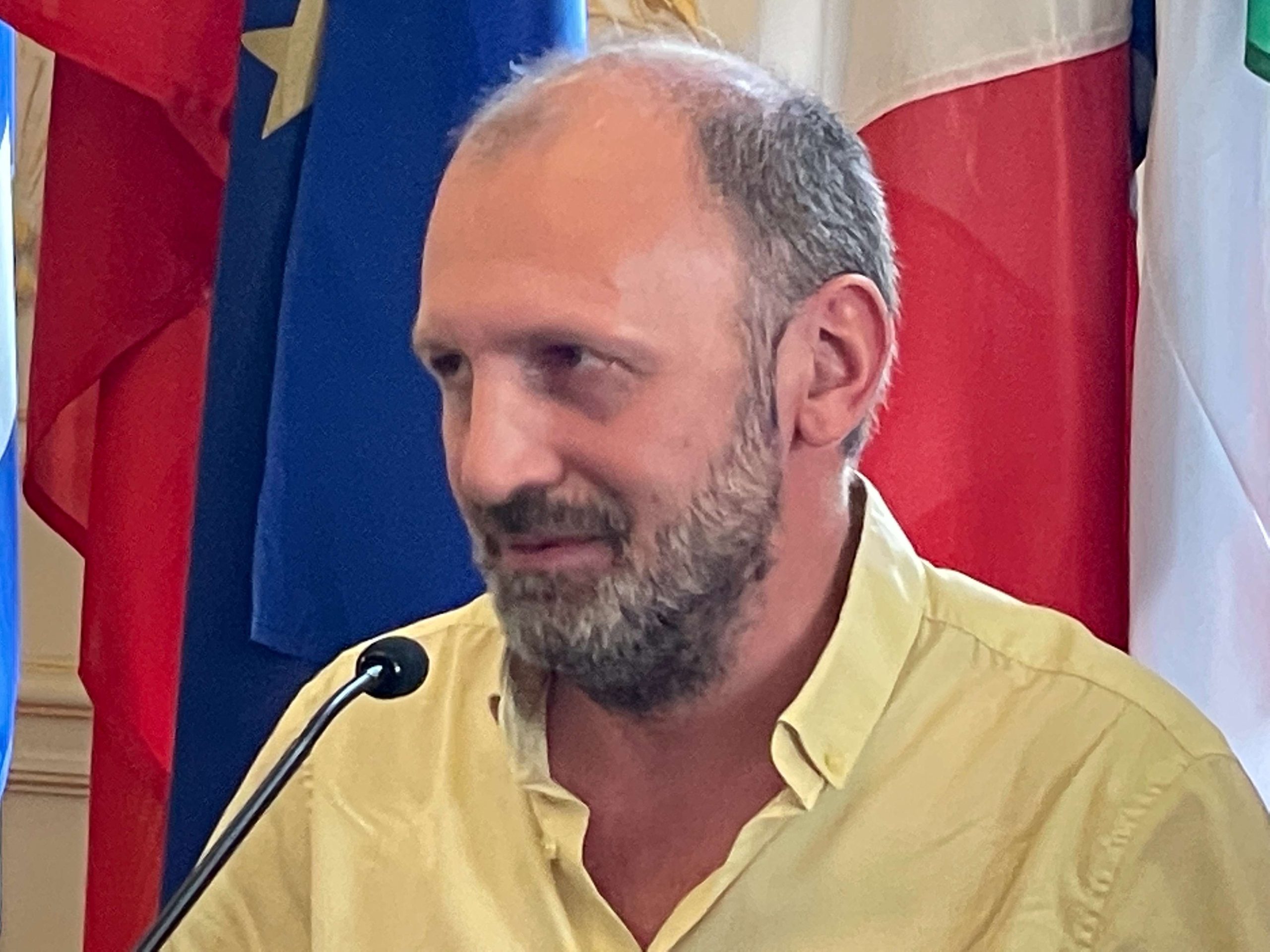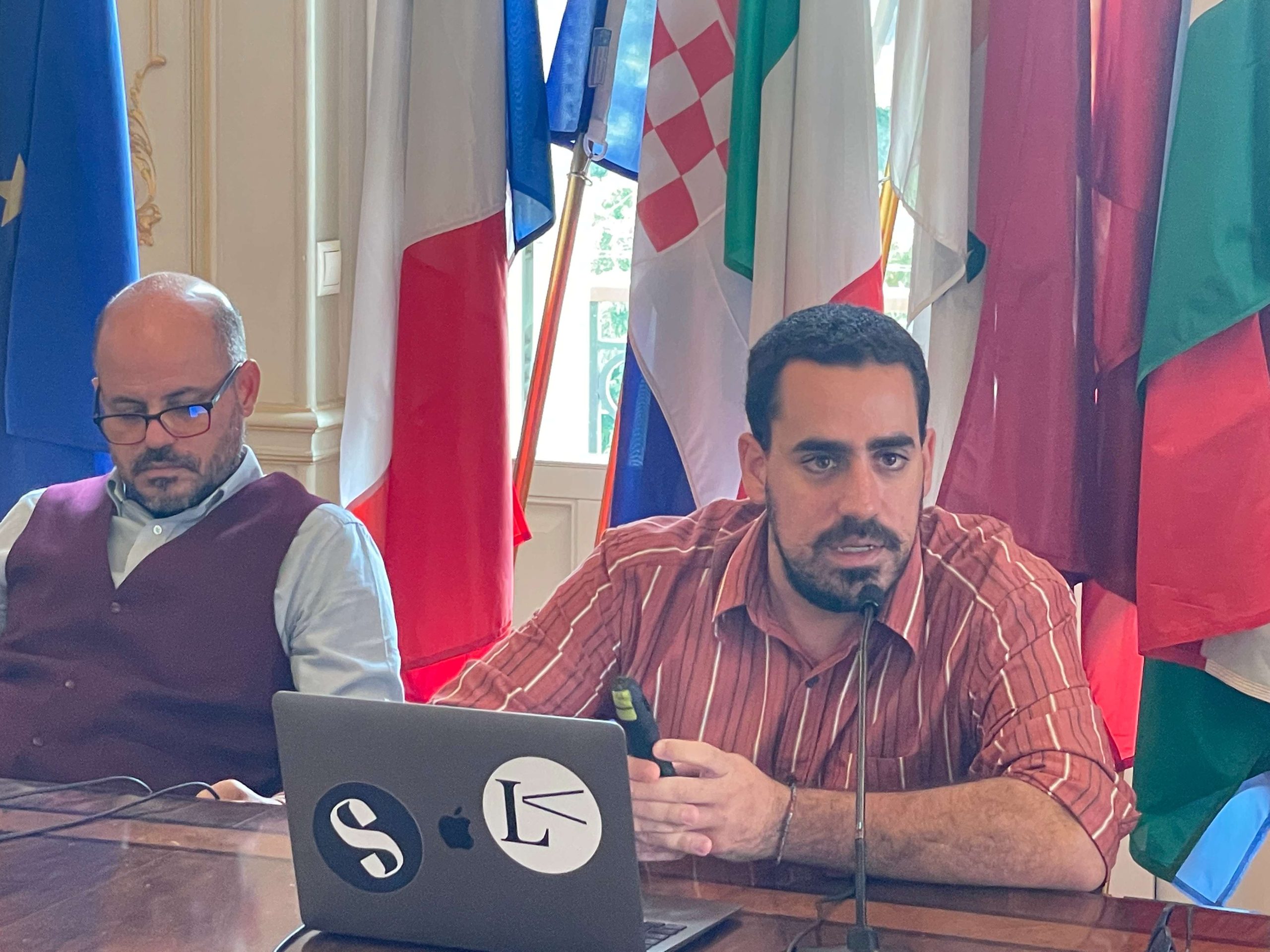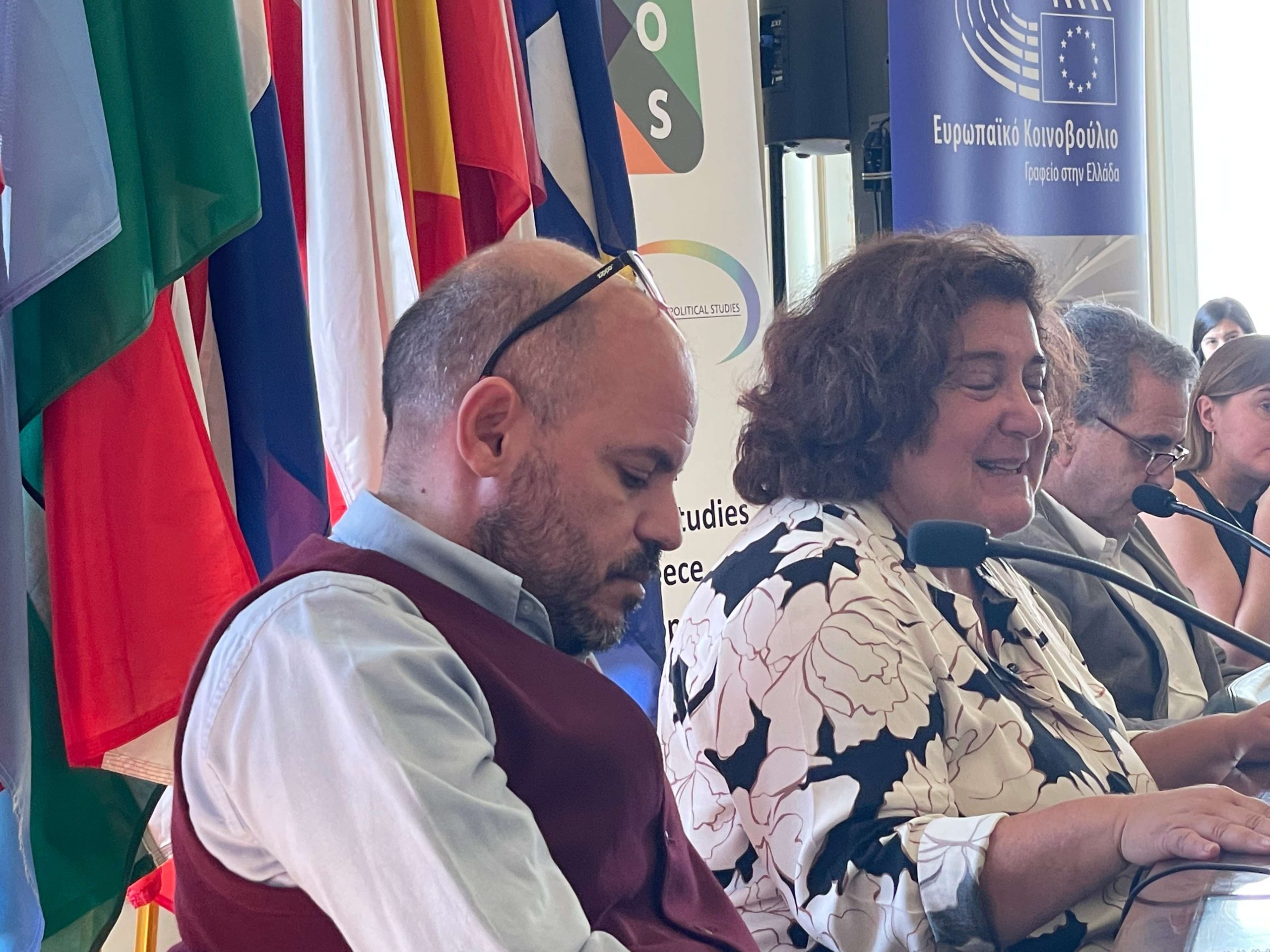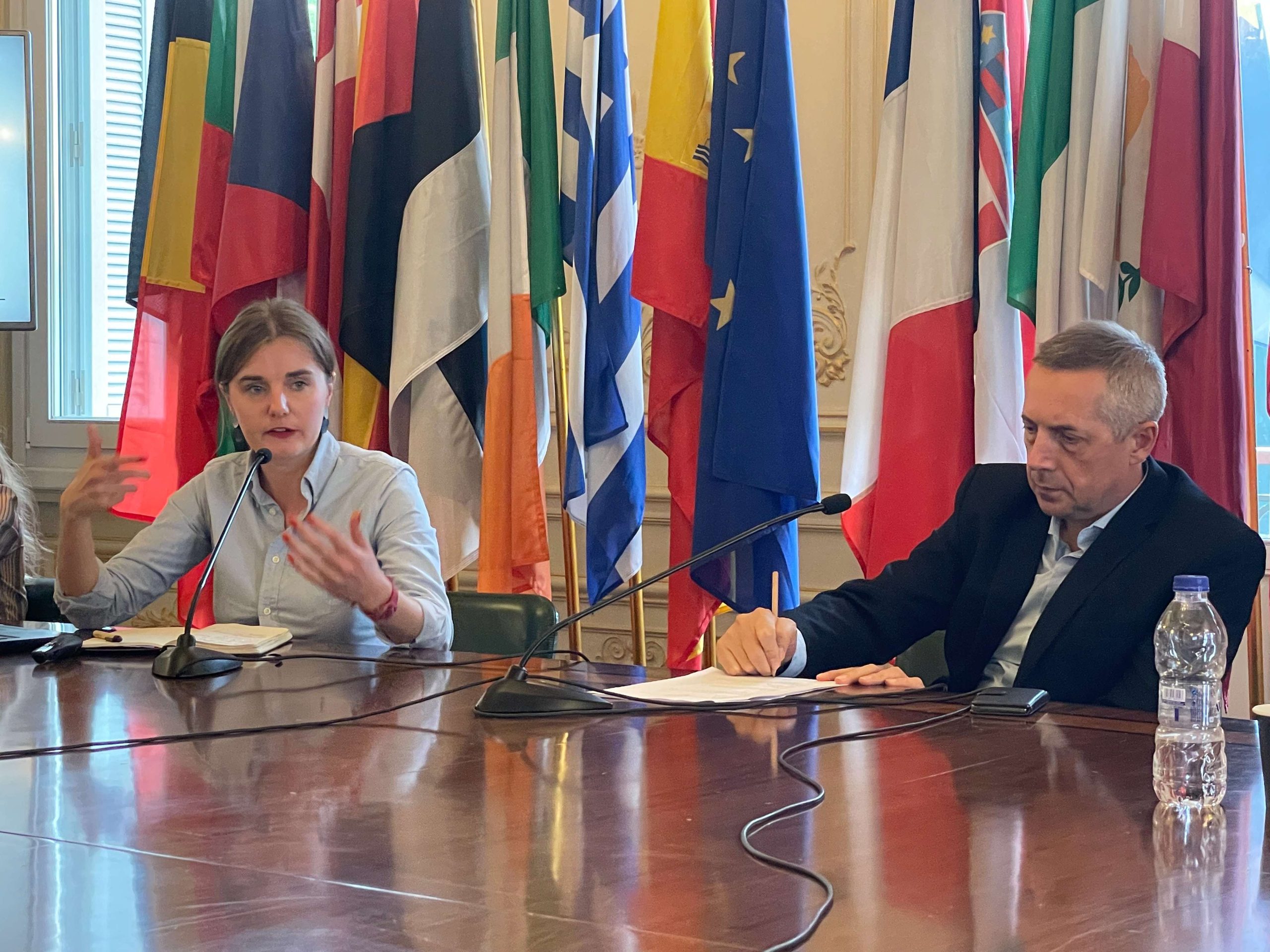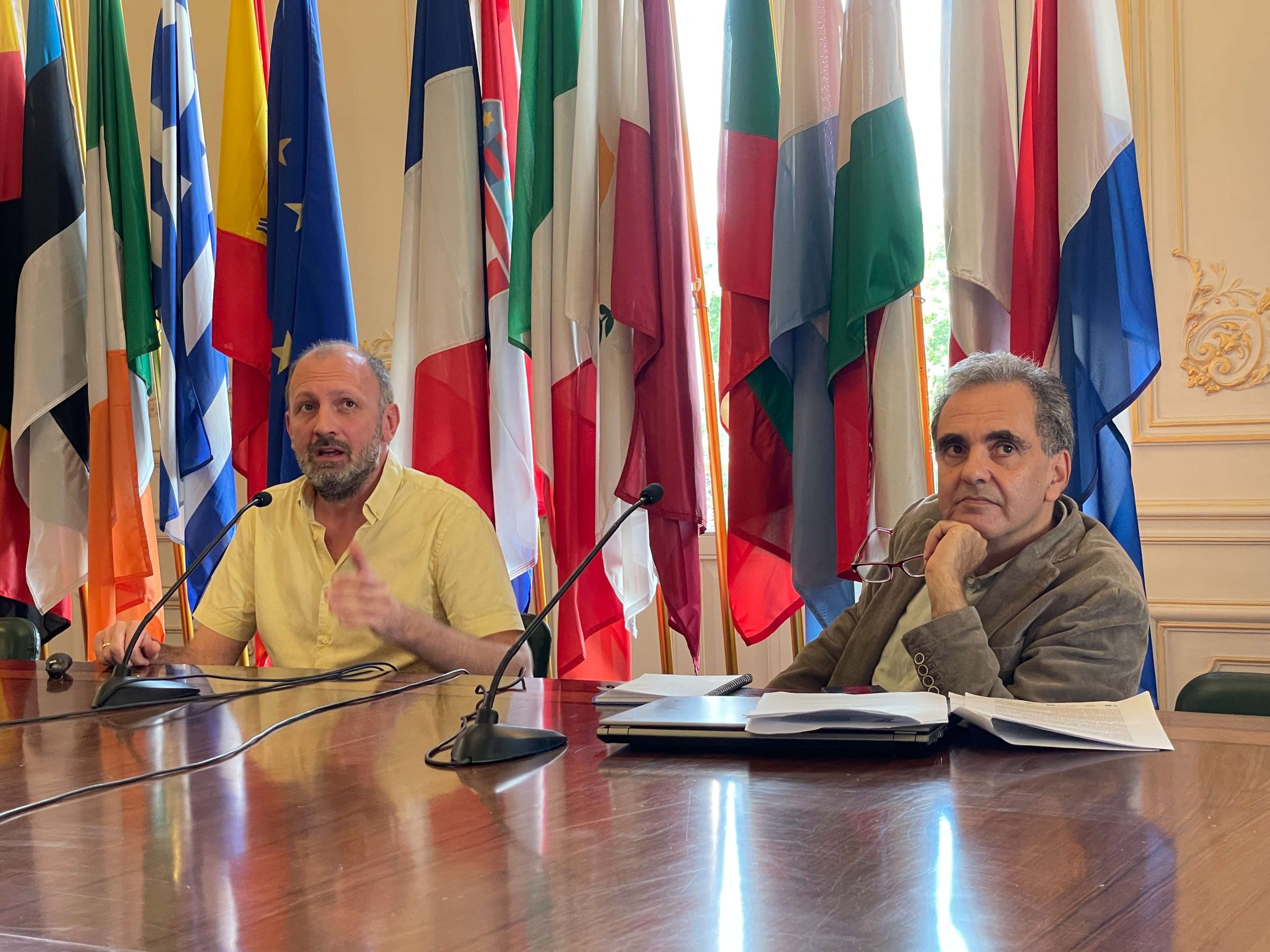Symbiosis-School of Political Studies in Greece, affiliated to the Council of Europe Network of Schools embarked on the “Information Disorder: Understanding propaganda techniques during a war infodemic” project from July to October 2022, in Thessaloniki and Athens. The aim has been to support participants in developing their understanding on the sources of misleading and/or false information and to activate critical thinking and media literacy skills in recognizing and responding to these phenomena, including by making their own stories. The project has been supported by the European Cultural Foundation
Symbiosis
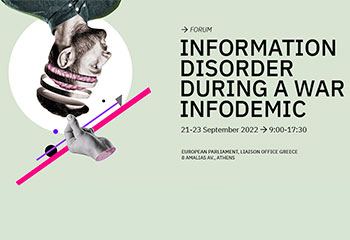
Information disorder during a war infodemic
Thessaloniki workshop
On July 1-3, 2022, the Thessaloniki Workshop “Information Disorder: Understanding propaganda techniques during a war infodemic” involved presenters and facilitators from Greece, Ukraine, Cyprus/UK and Serbia focusing on the ongoing “war infodemic” and on countering multiple threats of disinformation, misinformation, propaganda filter bubbles and fake news promoted through media, following the invasion in Ukraine.
Stories of people experiencing the war, fleeing from harm, suffering trauma and displacement, all form part of how the war is perceived, as well as fought. Further, how political communication is designed and carried out, how political parties develop and defend positions, needs to be unpacked. As the world is witnessing the suffering of Ukraine, yet also many other parts of the world, with millions displaced and seeking safe refuge, news, language, and narratives are crucial to push for a culture of solidarity, freedom of information and expression and for creating safe and brave spaces, particularly for those displaced. The risk of being exposed to information disorder without actively recognizing how it might influence attitudes, knowledge, emotions and behaviours is dramatically increased and exacerbated during periods of crisis.
Ukrainian refugees, diaspora communities and locals, discussed how to critically consume media and information and to raise their own voices through alternative media. The workshop enhanced participants’ skills in recognizing disinformation and use of social media; discussed good practices for responsible reporting during an infodemic; and explored story-telling techniques and tools. Stories started been weaved.

Culture of Solidarity Fund – Ukraine special edition
Introduced by the European Cultural Foundation (ECF) in 2020, the Culture of Solidarity Fund was originally set up as a corona-response mechanism for pan-European cultural initiatives. Established as a public-philanthropic partnership fund, it supported nearly 100 cultural projects that contributed to maintaining and reinforcing European solidarity and the idea of Europe as a shared public space during the pandemic lockdowns.
Today, the war in Ukraine has put new relevance to our Culture of Solidarity mission and calls for funding urgent European and cultural action more than ever before.
With pooled resources from a group of European co-funders, the Culture of Solidarity Fund was relaunched as a pan-European effort right at the beginning of the war to respond to local cultural emergency needs. As a result of their long-standing programmes work in Ukraine and Eastern Europe, the team of the Culture of Solidarity Fund and its partners have relied on a widespread network of cultural initiatives in Ukraine to identify and answer such immediate emergencies.
The Culture of Solidarity Fund has financed more than 70 projects with more than 1 million Euros. Thanks to our many European partners and their contributions the Fund will continue to review the many proposals already received.
Athens forum
Then, from 21st to 23rd September the Athens Forum “Information disorder during a war infodemic” was hosted by the European Parliament, Liaison Office Greece. The Heinrich Böll Stiftung, Thessaloniki, the Council of Europe and InsideStory as a media sponsor, supported the event further.

Experts and journalists from Greece, Ukraine, Russia, Lithuania, Turkey and Italy, displaced persons, civil society advocates, humanitarian workers, media workers and students discuss on how, fueled by politics, economics and history, the global take on the war in Ukraine has varied from region to region, particularly given the role that (dis)information has played in influencing these views. Discussions focused on how misinformation plays part in and is part of the war, mechanisms of misinformation, unfolding political narratives, challenges in reporting from the field, debunking the phenomenon in the media, including social, and discussing ways forward, including news checking. How information is diffracted and multidimensional, mediased in unprecedented extent, serving strategic agendas and controlled yet at the same time spiraling out of control. How narratives on the war/s invariably are abundant and differ.
The right to freedom of expression and information constitutes one of the essential foundations of democratic society. In conflict situations and wars, the role of the media is critical in providing the public with accurate and timely information. Trustworthy news and images can contribute to the protection of civilians and conflict prevention, bring to the attention of the international community the horrors and reality of conflict and expose violations of human rights and international humanitarian law. As a consequence, the work of those informing and communicating in conflict zones is fraught with dangers: denial of access, censorship, harassment, arbitrary detention and attacks are alarmingly frequent. As others who decide to work in conflict areas, journalists take consciously a special risk by working in contentious areas and on contentious topics. Their choices in reporting, their capacity in selecting their stories and in checking facts, all impact upon the unfolding events.
Conflict situations, including authoritarianism, are also often a fertile soil for mass disinformation campaigns intended to undermine the proper understanding of the developments, as well more generally, peaceful security and democratic processes. Developing tools to protect democracy more effectively from “information weapons”, while preserving freedom of expression and freedom of the media both in the countries involved in the conflict and more widely, seems to be a priority for a range of actors, from multilateral international organizations to think tanks and the media themselves in a largely unregulated universe.
During the project, participants engaged in exploring different views and in presenting voices unheard. Interviewing displaced persons, uncovering difficult dilemmas, investigating causes and long held beliefs, as well as providing space to experts to revisit statements and ideas, challenging the blacks and whites, has been the backbone of the initiative, a backbone hopefully strong enough to hold us standing during stormy winters.
Three Reports from the Forum
The final day of the Information Disorder During a War Infodemic Forum went to the heart of institutional practices that enable disinformation.
The first day of the ‘Information Disorder During a War Infodemic’ forum explored the various channels propagandists use to reach people and connect with them.
The second day of the Information Disorder During a War Infodemic forum dealt with misinformation as it appears in journalism and the media sphere and more importantly, with the possible answers to the problem

